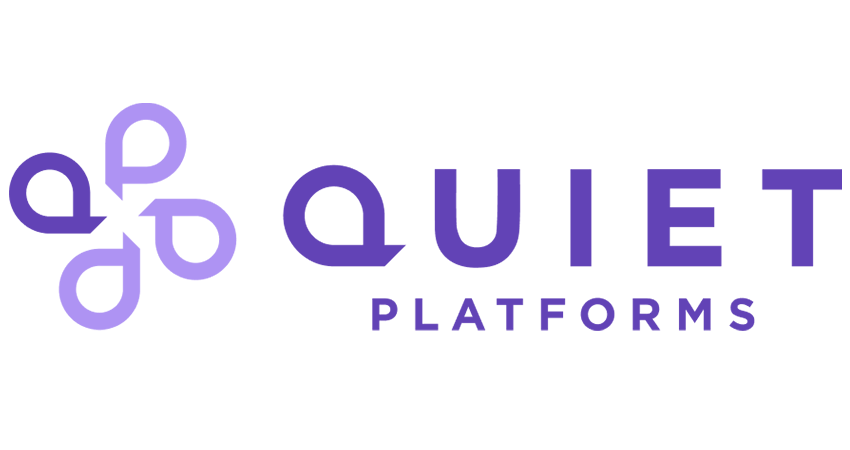American Eagle Outfitters and Gap, who both launched B2B outsourcing units in 2022 to monetize their large shipping and fulfillment networks, have been adding partners to expand capabilities, providing SMB and omnichannel retailers access to capacity and optimization they wouldn’t have otherwise.
Quiet Platforms, a unit of American Eagle, and GPS Platform Services, part of Gap Inc., have both been signing deals with shipping software and last-mile carrier platforms lately to create more opportunities for themselves, their partners and customers. Quiet Platforms, based in Pittsburgh, grew out of AEO’s 2021 acquisitions of 3PL Quiet Logistics and AirTerra, a carrier sourcing platform that specializes in zone skipping.
Democratization the Main Message
Both companies talk about an emphasis on democratizing access to enterprise-level fulfillment and logistics for brands and SMB companies that don’t have the resources or capabilities to compete with the likes of Amazon, Walmart and Target.
“We’re helping smaller ecommerce companies punch above their weight, and larger omnichannel retailers to create capacity and distributed inventory placement it would be hard for them to get to without us,” said Bill Besselman, chief commercial officer of Quiet Platforms and SVP of supply chain execution for American Eagle Outfitters.
In recent weeks, Quiet Platforms has inked deals with Shipium, a startup offering multi-carrier selection and onboarding, and with AxleHire, a platform that connects brands with smaller carriers and independent drivers. The latter already had a relationship with Quiet Logistics before it was acquired by American Eagle in 2020, leasing space in a Los Angeles facility. That has since expanded to a new facility in Atlanta.
GPS Platform Services, meanwhile, recently added partnerships with Ware2Go, an asset-light unit of UPS that has a national network of distribution and fulfillment facilities, and with Onfleet, a startup that also provides last-mile technology linking smaller carriers to shippers.
“As we’ve been out there working with customers, we saw an opportunity to partner with Ware2Go to bring in a broader customer base,” said Larissa Pschenica, general manager of GPS Platform Services, and formerly senior director of global inventory strategy and brand analytics for Gap. Inc. “They’re hooked into the SMB market, and we have the back end and automation in supply chain their merchants are looking for. It’s a nice marriage that allows us to tap that market and onboard customers in a speedier way.”
Handling Internal and External Volumes
Asked about GPS’s ability to handle both internal order flows as well as client volume, Pschenica said Gap has already been doing that, given the different business requirements of its main banner plus Banana Republic, Old Navy and Athleta.
“The four core brands are already mixed in many warehouses,” she said. “As orders move through the warehouse, we’re able to leverage all the investments we’ve made over the years in technology and automation to seamless onboard new brands and treat them as we do any other units. If they need value-added services, we’re able to layer it on where applicable.”
Steve Denton, CEO of Ware2Go, said his company’s software orchestrates fulfillment for its SMB clients, routing orders from a Shopify cart to a partner network of 43 fulfillment centers, with the addition of GPS facilities. Denton said the two companies have spent the last nine months refining the technology integration.
“(The GPS partnership) is a home run for us, opening up more capacity, especially in retail apparel,” he said. “For Gap, they commercialize our capabilities, gaining incremental capacity without hiring a sales and tech team. The combination is so attractive to merchants, giving them the ability to access this type of supply chain speed and sophistication (with GPS) they could never achieve on their own.”
Going Against the Giants
Jason Murray, founder and CEO of Shipium, said tech partnerships with GPS and Quiet Platforms are all about driving increased package volume from smaller shippers that can be consolidated and leveraged to drive down a cost structure that continues to grow.
“If you’re in the middle tier, you need to share and work with someone else,” said Murray. “At the core of these plays is, how to get more stuff into building and onto trucks, so you have more scale and volume to leverage.”
A veteran of Amazon, Murray said the retailer-as-B2B-outsourcer model, creating this type of flywheel effect of building volume and density and leveraging it to lower costs, comes right of his former employer’s playbook and offers it to SMBs. “It ultimately puts them in a better position to compete with the likes of Amazon,” he said.
In terms of business growth, Pschenica said she couldn’t name retail clients of GPS, but said “we’ve signed some contracts, and we’re signing more.”
“It was mostly referrals when we soft launched early last year, as we learned the marketplace and understood what our capabilities were and how to fit them into the market,” she said. “We’re excited about where we are given really limit marketing and referrals.”
Quiet Platforms claims dozens of retail clients, including Saks Off Fifth and Mack Weldon
Besselman said sole sourcing from a major carrier can be good from a cost perspective but bad on flexibility. He added Quiet Platforms isn’t trying to be anti-FedEx and UPS, lauding them as $100 billion giants, but simply offering smaller players an alternative.
“If you’re an SMB shipper, your options are limited,” he said. “Access to a regional carrier can be very costly. It takes time, people and creating a contract. We’re bring that all together, so it’s easier to get out of sole source.”

